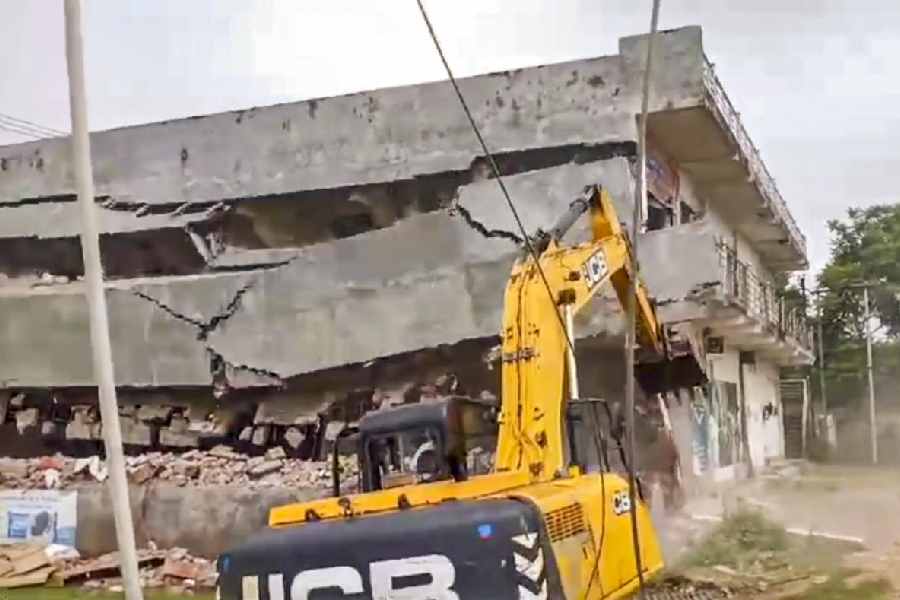Properties of neither accused nor suspects, and not even those of convicts, can be demolished by authorities merely because of their alleged criminal antecedents, the Supreme Court said on Monday.
It decided to issue pan-Indian guidelines to restrain authorities from such excesses. The homes of many people accused of crime have been demolished with bulldozers in many parts of the country in recent years, mostly by BJP-led governments or civic bodies, with Muslims said to be the worst sufferers.
“How can anybody’s property be demolished like this? Be it a convict or an accused?” the bench of Justice B.R. Gavai and Justice K.V. Viswanathan asked during a brief hearing.
“Property of an accused or suspect or even convicts can’t be demolished. We will issue pan-India guidelines; apparently there is a breach of rules,” the bench remarked orally.
It asked the batch of petitioners and the governments at the Centre and in Uttar Pradesh, Madhya Pradesh, Rajasthan and Delhi to come out with their suggestions on the prospective guidelines. The next hearing is on September 17.
Solicitor-general Tushar Mehta, appearing for the Centre and Uttar Pradesh, said the government too believed that no property can be demolished merely because the occupant or owner was involved in criminal cases.
Mehta told the bench: “We (authorities) can act (demolish property) only if there are municipal law violations.”
This prompted the bench to remark: “But looking at the complaints, we feel there is a breach. If only in cases of municipal law violation, it can be done, as you are assuring, we will document it.”
Senior advocate Dushyant Dave, appearing for petitioner Jamiat Ulama-i-Hind, insisted that a statement from Mehta be recorded saying that “bulldozer justice will not be meted out to people” anywhere in the country.
“All states (are) resorting to it now, we are on a larger issue now,” Dave said.
Mehta countered that he did not want to sensationalise the issue for the media.
Justice Gavai made it clear that the court would not protect any unauthorised constructions in the country.
“If construction is unauthorised, even in such cases, the demolitions have to be in accordance with law,” the bench said.
“A father may have a recalcitrant son, but if house is demolished on this ground... this is not the way to go about it,” Justice Viswanathan remarked, referring to a complaint that a house was demolished on the ground that the tenant’s son allegedly had a criminal background.
The first three petitions in the matter were moved in 2022 by the Jamiat, CPM leader Brinda Karat and a fruit seller after houses were demolished in Delhi’s Jahangirpuri locality following communal violence during a Hanuman Jayanti procession.
Two more applications were recently filed from Madhya Pradesh and Rajasthan, challenging the legality of such demolitions.










